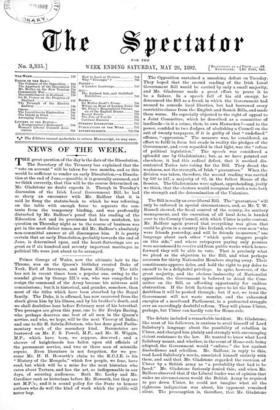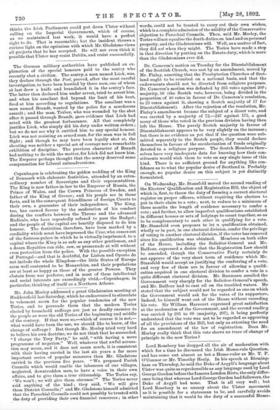The debate included a remarkable incident. Mr. Gladstone, like most
of his followers, is anxious to avail himself of Lord Salisbury's language about the possibility of rebellion in Ulster, and charged him plainly and strongly with encouraging violent resistance to the law. He wanted to know what Lord Salisbury meant, and whether, in the event of Home-rule being adopted, the Government would " enforce " the law against disobedience and rebellion. Mr. Balfour, in reply to this, read Lord Salisbury's words, associated himself entirely with them, and said that Mr. Gladstone regarded the coercion of Ulster by a British army as "a probability that had to be faced." Mr. Gladstone furiously denied this ; and when Mr. Balfour observed that if the Liberal leader was of opinion that under no circumstances would the British Army be required to put down Ulster, he could not imagine what all the righteous indignation was about, his opponent remained silent. The presumption is, therefore, that Mr. Gladstone
thinks the Irish Parliament could put down Ulster without calling on the Imperial Government, which of course, as we maintained last week, it would have a perfect right to do. That is reasonable; but the incident throws a curious light on the optimism with which Mr. Gladstone views all projects that he has accepted. He will not even think it possible that Ulster may resist Dublin, and resist successfully.







































 Previous page
Previous page